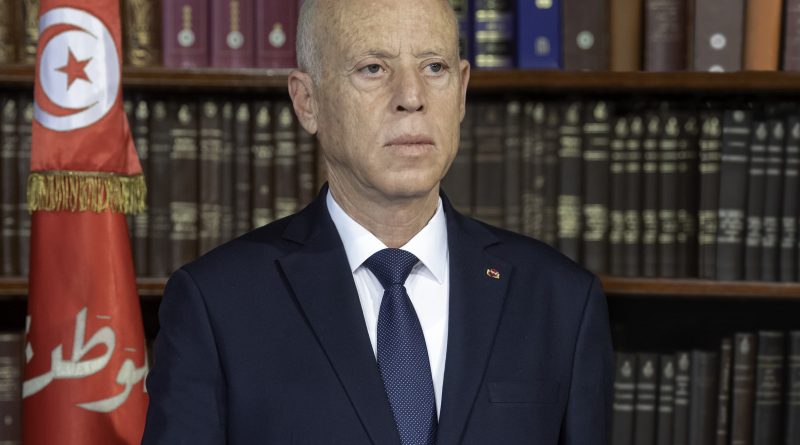Protests Erupt After Tunisia’s President Suspends Constitution
Hamzah Khan
Staff Writer
On September 22, Tunisian President Kais Saied announced that he would suspend parts of the country’s constitution and rule by executive decree, according to The Guardian. Tunisian news site Nawaat reports that days after the President announced the suspension, thousands of Tunisians protested in downtown Tunis, calling his actions a coup and unconstitutional. Many of the protestors were former supporters of President Saied who have grown disillusioned with his promise to solve Tunisia’s economic and political crises through executive action. The actions come after months of President Saied effectively holding absolute power, after he suspended parliament and sacked the prime minister on July 25 in response to mass protests over the government’s handling of the economy and COVID-19.
The former speaker of Parliament and head of the Ennahda Party, Rached Ghannouchi, criticized the president’s actions as detrimental to Tunisian democracy. Ennahda, a moderate Islamist party, was the largest party in parliament and quickly characterized the president’s actions as a coup. According to Al Jazeera, the president fired Prime Minister Hichem Mechichi and stripped all members of parliament of their immunity from prosecution in response to political gridlock and corruption. For months, parliament had been unable to form a governing coalition, leaving them unable to respond to Tunisia’s COVID-19 outbreak, one of the worst in Africa. Mass protests against Ennahda and parliament prompted Kais Saied, a former constitutional law professor and political outsider elected president in 2019, to take unilateral action. Initially, droves of people, frustrated by what they saw as an ineffective and corrupt parliament run by elites, came out to celebrate President Saied’s seizure of power.
President Saied repeatedly stated that his power grab would be temporary, but two months into his executive rule, Tunisia faces many of the same problems that existed before he took power, according to Bloomberg. Many Tunisians fear a return to a dictatorship, which they overthrew in 2011 after mass uprisings around the country. The protests sparked the Arab Spring and ultimately forced longtime dictator Zine El Abidine Ben Ali to flee the country.
Tunisia had been viewed by many as the only success story of the Arab Spring after it transitioned from a dictatorship to a democracy and established a constitution in 2014. According to the Middle East Institute, however, Tunisia’s democracy was in a fragile state due to a combination of ineffective governance and disillusionment by much of the populace in the Ennahda-led government. The government failed to respond to terrorist attacks by ISIL, which crippled the tourism industry and caused the country’s economy to plummet. Average Tunisians failed to see their standard of living improve as infighting between political parties, corruption, and economic stagnation only worsened the political atmosphere.
Al Jazeera reports that most of Tunisia’s political parties have definitively come out against Saied and have labeled his actions a coup. Four parties have announced a coalition to oppose Saied, announcing that he has “lost legitimacy.” The Ennahda Party, however, is absent from this coalition as of now, and 100 senior members resigned from the party after blaming party leaders for not standing up to Saied. The Tunisian General Labor Union, Tunisia’s largest union with nearly a million members, has also come out against Saied and reaffirmed their commitment to the constitution.
In response to mounting pressure, President Saied appointed Najla Bouden Romdhane as the new prime minister on September 29, reports NPR. Romdhane, who will be the first woman to head the government of an Arab country, was a geosciences professor who has previously worked with the World Bank and held posts within the Ministry of Education. Some see her appointment as illegal due to a constitutional stipulation that the Prime Minister must be approved by a parliament, while others see her appointment as a positive sign that Tunisia’s political situation is going back to normal, according to Al Jazeera. Romdhane’s new government will be tasked with solving multiple crises, as the country threatens to default on its debt and the COVID-19 pandemic continues to strain the healthcare system. However, she is expected to have significantly less power than previous prime ministers, due to President Saied’s extensive executive authority in the absence of a constitution.

